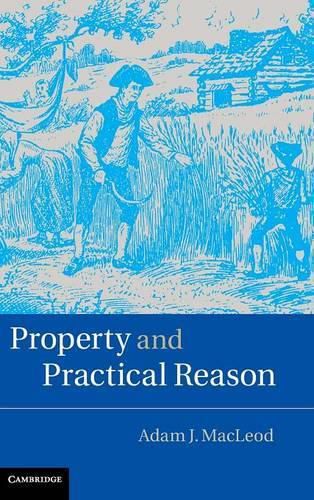Readings Newsletter
Become a Readings Member to make your shopping experience even easier.
Sign in or sign up for free!
You’re not far away from qualifying for FREE standard shipping within Australia
You’ve qualified for FREE standard shipping within Australia
The cart is loading…






Property and Practical Reason makes a moral argument for common law property institutions and norms, and challenges the prevailing dichotomy between individual rights and state interests and its assumption that individual preferences and the good of communities must be in conflict. One can understand competing intuitions about private property rights by considering how private property enables owners and their collaborators to exercise practical reason consistent with the requirements of reason, and thereby to become practically reasonable agents of deliberation and choice who promote various aspects of the common good. The plural and mediated domains of property ownership, though imperfect, have moral benefits for all members of the community. They enable communities and institutions of private ordering to pursue plural and incommensurable good ends while specifying the boundaries of property rights consistent with basic moral requirements.
$9.00 standard shipping within Australia
FREE standard shipping within Australia for orders over $100.00
Express & International shipping calculated at checkout
Property and Practical Reason makes a moral argument for common law property institutions and norms, and challenges the prevailing dichotomy between individual rights and state interests and its assumption that individual preferences and the good of communities must be in conflict. One can understand competing intuitions about private property rights by considering how private property enables owners and their collaborators to exercise practical reason consistent with the requirements of reason, and thereby to become practically reasonable agents of deliberation and choice who promote various aspects of the common good. The plural and mediated domains of property ownership, though imperfect, have moral benefits for all members of the community. They enable communities and institutions of private ordering to pursue plural and incommensurable good ends while specifying the boundaries of property rights consistent with basic moral requirements.